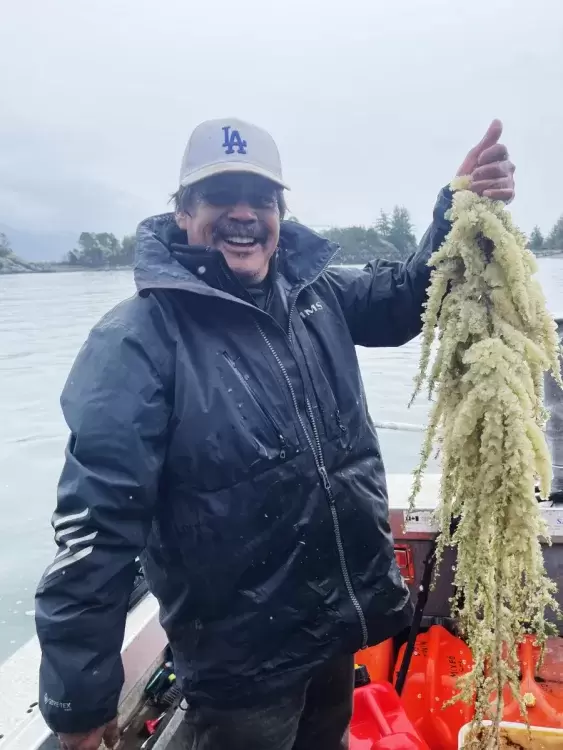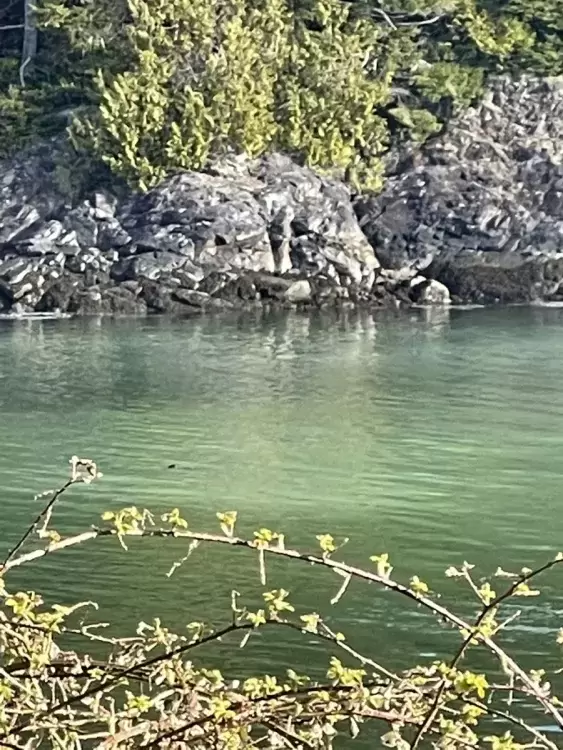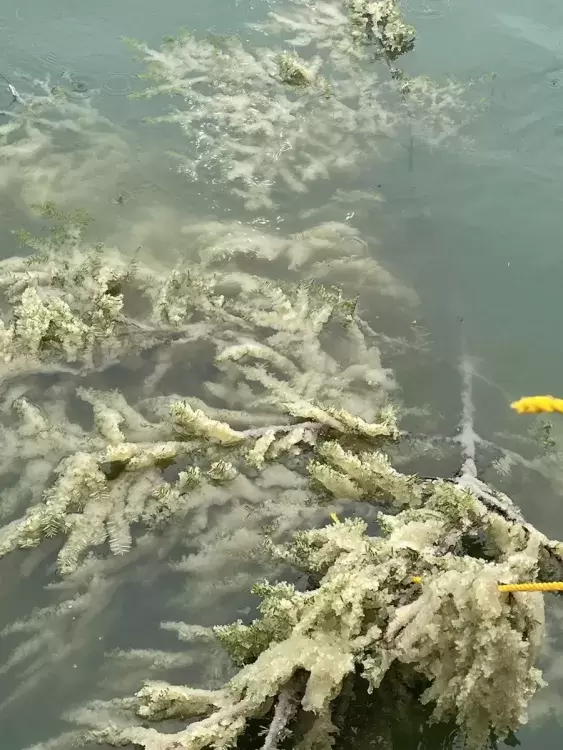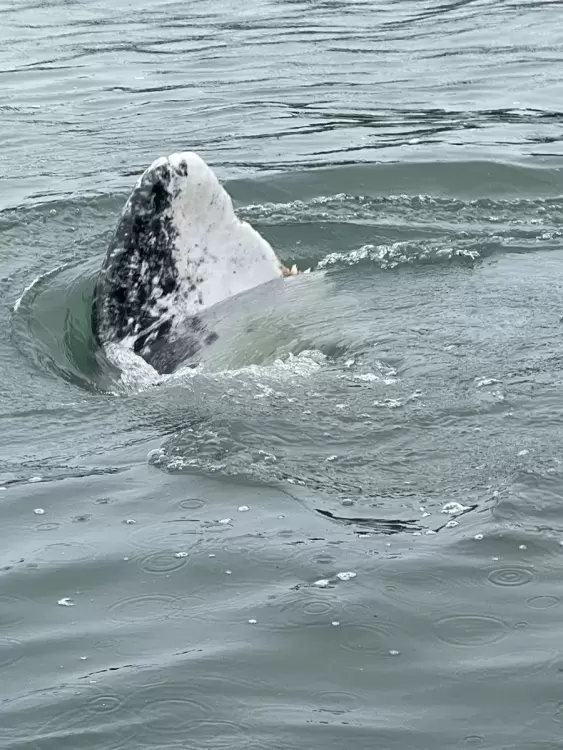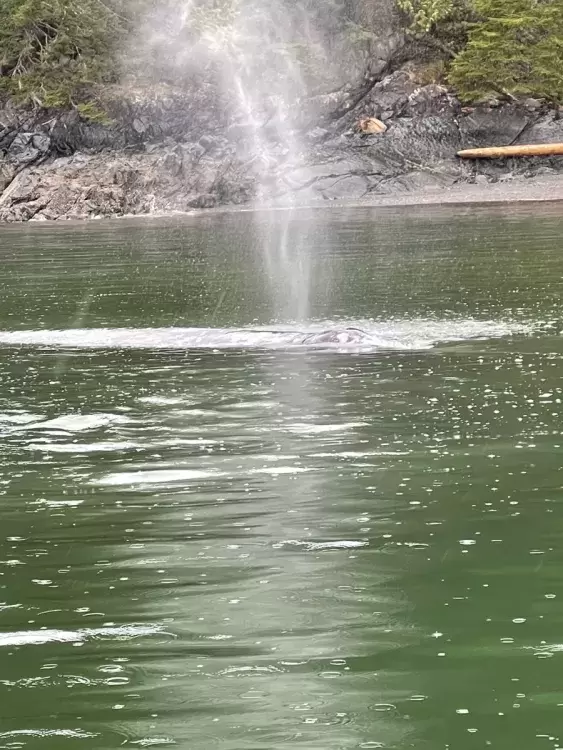Excitement came from the only remaining household in the ancient Mowachaht village site of Yuquot today, as residents encountered the richest herring spawn in years.
“The whole bay has been spawning for two days,” said resident Ray Williams, who has lived in the Nootka Island village for most of his life. “The whole bay is just completely white, all the way to outside the cove.”
Each year female ƛusmit, or herring, each lay thousands of eggs in various parts of the Pacific coast. As the k̓ʷaqmis, or eggs, stick to the ocean’s rocks, silt and kelp, males spread milt to fertilize them. This creates a whitish, or aquamarine cloud.
Ray’s son Darrell collected the k̓ʷaqmis on branches, following a traditional method among Nuu-chah-nulth people of collecting the popular food.
“It’s wonderful news for our people,” said Ray of the herring spawn, which could be a sign of health for the keystone species on the Pacific coast.
Ray recalls it being three or four years since a healthy herring spawn was seen at Yuquot.
“We had a good spawn here a few years ago, but not as good as today,” he said. “It used to be big many years ago, but this is a good one this year.”
Concern over herring populations have enabled the fish to be protected from commercial fisheries throughout most of the West Coast in recent years. Unlike the seine and gillnet fisheries that usually takes place on the east side of Vancouver Island, a west coast commercial catch hasn’t been permitted since 2015. The previous year Nuu-chah-nulth nations had a court injunction against the commercial catch, but the Federal Court declined this in 2015. Commercial boats came to the island’s west coast to find hardly any fish worth catching, leaving shortly afterwards.
Now Nuu-chah-nulth nations are pushing to ensure this doesn’t happen again so that herring stocks have ample time to rebuild. In November a letter was sent to Canada’s Fisheries Minister Joyce Murray, advising her that the time for a commercial catch has not arrived, and that the fishery’s closure should be indefinite and not up for consideration each year.
In the Strait of Georgia commercial boats aim to catch females carrying eggs that are ripe, but not yet released. This roe is usually exported to markets in Japan, China and the United States. The caught herring are normally fed to livestock or ground down to be feed for fish farms.
As news of the herring spawn spread beyond Yuquot, two boats ventured to the remote location to collect k̓ʷaqmis for Mowahchaht/Muchalaht elders living in the First Nation’s community of Tsaxana. Wayne Hinchcliffe and Sammy Johnson manned a vessel that came to the Nootka Island location on Saturday, March 12, as did Justin Blondeau and Preston Maquinna, who arrived in a fisheries boat.
“A big thank you and a pat on the back for doing what they did for elders in Tsaxana,” said Ray.

